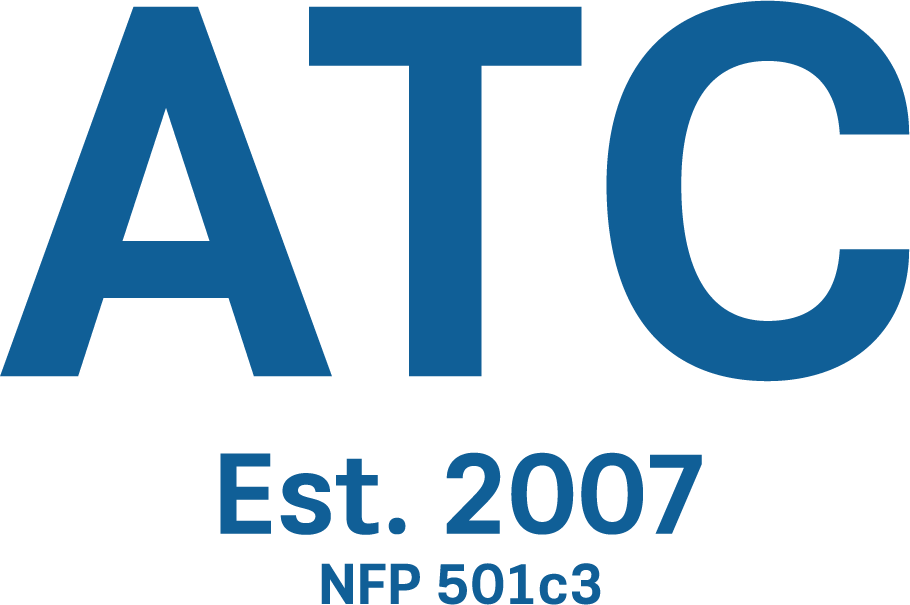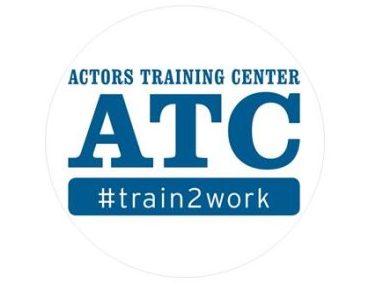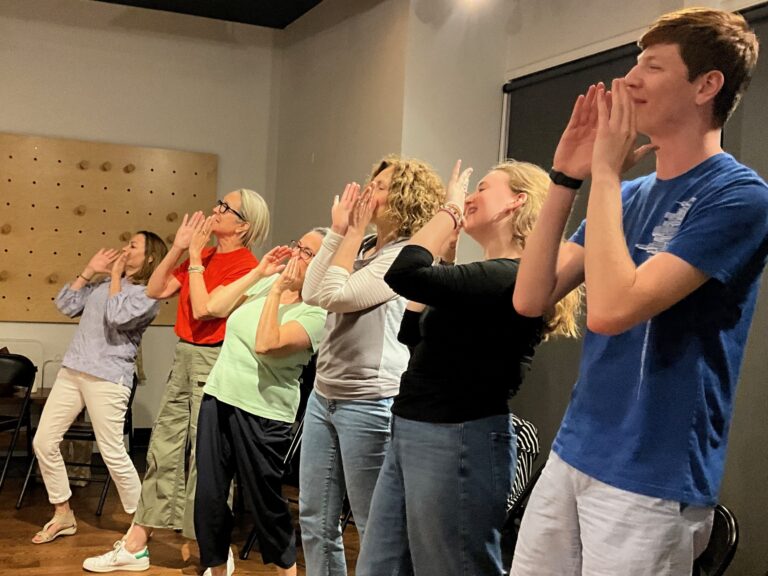Have you ever wondered what taking an acting class can do for you or your child? Curriculum covered in acting classes can also have an effect on your life outside of your creative endeavors. If you have trouble speaking to new people or in front of people, making new friends, or understanding media and social cues, an acting class could give you a nudge in the right direction!
1. Self-Confidence.
You might think that anyone signing up for an acting course is already pretty confident, right? On the contrary, many successful actors begin as the shyest student in class! ATC students from every generation have blossomed from wallflowers into confident actors who can no longer shy away from the spotlight!
2. Social Skills
Studying a basic acting curriculum naturally helps build social skills. Working with a scene partner can evoke empathy, helping students to better understand what another person may be feeling, and help to recognize what physical or verbal cues equate to different feelings. Preparing monologues and other solo work offers a great lesson in poise, giving students an opportunity to hold themselves high and tackle a challenge on their own. Emotional intelligence is necessary to successfully work through a scene, and becomes a work in progress that students build exponentially from the moment they enter an acting studio. Remember – recognizing changes in tone of voice or speech patterns, and understanding the physical movements that inflect different meanings into the words people say does not come naturally to everyone! These are skills that can be built from the ground up, and never stop being needed in our day-to-day life.
3. Teamwork
Working as a part of a team and conceptualizing a common goal are important skills that don’t always get enough exercise. Teamwork skills are indispensable in any workplace and across every avenue of education, and are strengths that we never stop using throughout life. Acting curriculum teaches students to trust themselves as well as their counterparts, all while thoroughly analyzing the best way to complete a goal.
4. Challenging Your Mind
Whether you play Sudoku with your morning coffee or prioritize a diet full of brain food, exercising your mind is a must! Consider this alternative – joining a class full of like-minded individuals, tasked with weekly memorization of short script excerpts and working toward an evolved understanding of the patterns of human nature. Acting offers several avenues to keep the mind sharp, even if memorization was never your thing! By analyzing character choices, reading between the lines of the text, and working alongside your fellow actors, acting classes offer stimulating questions to ponder and a place to exercise creative problem solving.
5. Stress reduction
According to the Mayo Clinic, laughter is the best medicine! Well, not really, but laughing actually can offer many short and long term benefits to mental and physical health. Connecting with a group and sharing joy drastically improves quality of life. Having a creative outlet established in your life can soothe the tension in your body as you engage with your hobby, as well as stimulate the mental need for creativity. By joining a community of other creatives, you can achieve so much more than you think – whether you meet a classmate with similar interests, develop new skills around emotional intelligence, or discover passion for any other avenue of creative expression, stress will start to melt away inside the acting studio.
6. Understanding Media
Tackling media from the actor’s perspective can offer a brand-new outlook on your favorite media, or your not-so-favorite media. Consider why you call a movie your least-favorite. Is it the plot? The script? The acting choices? What about that famous actor that you just can’t get behind – are they type-cast often? Do they lean into a genre you don’t like? What choices do they make that aren’t compelling to you? Whether it helps you clock jokes that just didn’t land, or recognize that a script with high potential was bogged down by acting choices, seeing media from the other side can offer a new lens on the content, and offer tools to help you decide just what is or isn’t clicking.
Check out ATC’s Course Catalog for a look at our upcoming classes & workshops!





